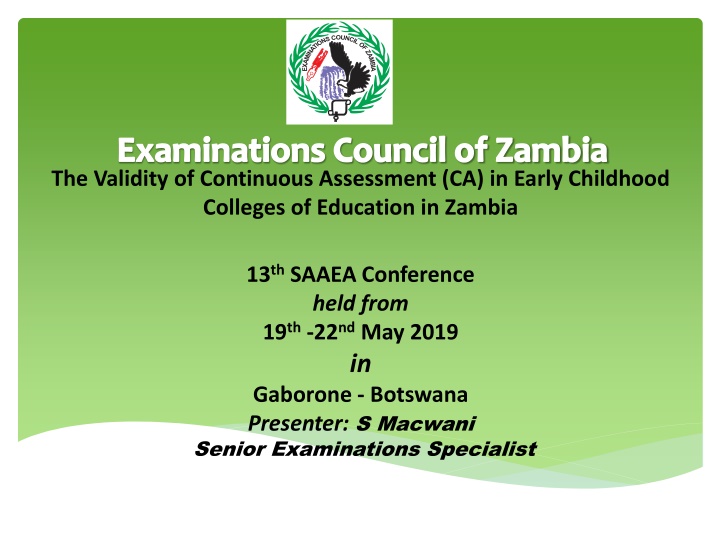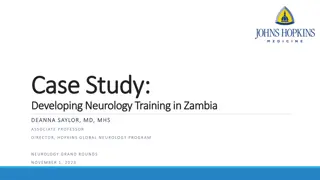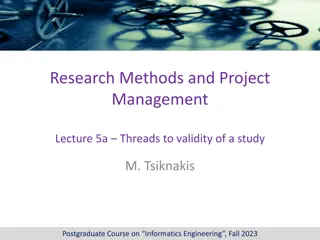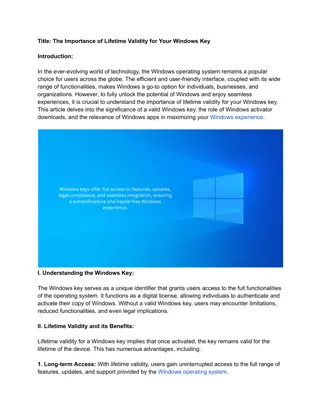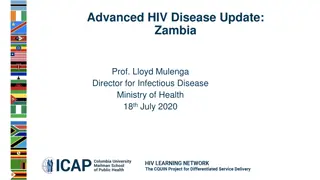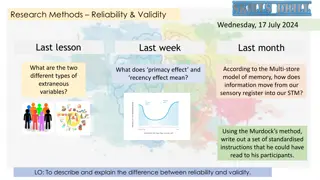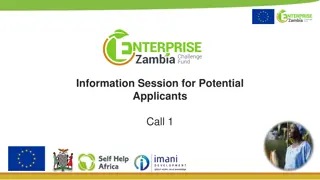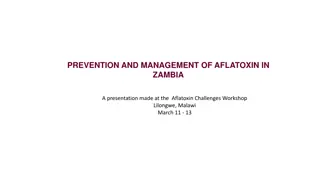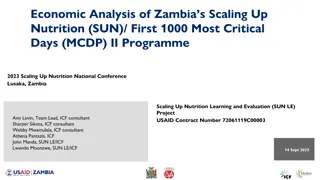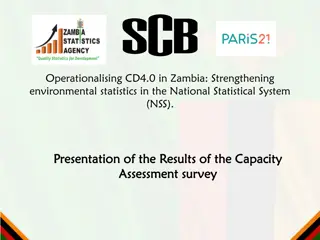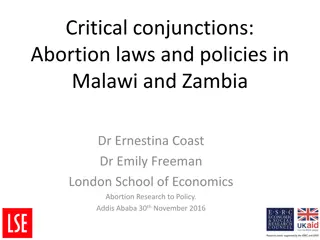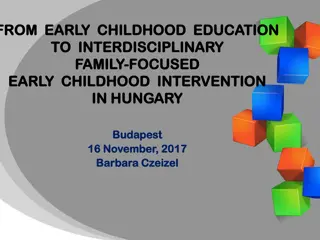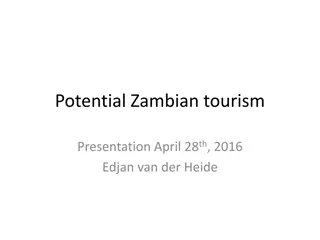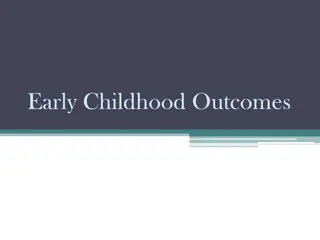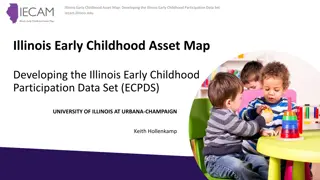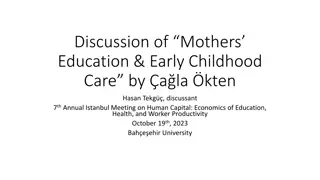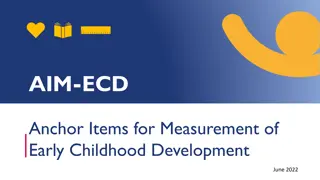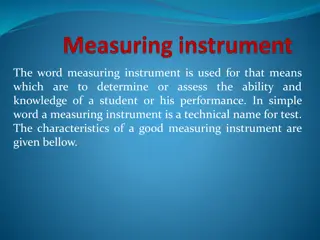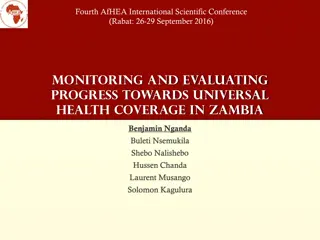Validity of Continuous Assessment in Early Childhood Colleges of Education in Zambia
This study explored the adherence of assessors to Moderation Guidelines in Continuous Assessment in Early Childhood Colleges of Education in Zambia. It assessed the availability of teaching and assessment documents, syllabus coverage, consistency in awarding marks, and alignment of assessment tasks to the syllabus. The qualitative study analyzed 210 moderation forms from 13 colleges, revealing findings on document availability, syllabus coverage, and more.
Download Presentation

Please find below an Image/Link to download the presentation.
The content on the website is provided AS IS for your information and personal use only. It may not be sold, licensed, or shared on other websites without obtaining consent from the author.If you encounter any issues during the download, it is possible that the publisher has removed the file from their server.
You are allowed to download the files provided on this website for personal or commercial use, subject to the condition that they are used lawfully. All files are the property of their respective owners.
The content on the website is provided AS IS for your information and personal use only. It may not be sold, licensed, or shared on other websites without obtaining consent from the author.
E N D
Presentation Transcript
Examinations Council of Zambia The Validity of Continuous Assessment (CA) in Early Childhood Colleges of Education in Zambia 13th SAAEA Conference held from 19th -22nd May 2019 in Gaborone - Botswana Presenter: S Macwani Senior Examinations Specialist
The Validity of Continuous Assessment in Early Childhood Colleges of Education in Zambia Outline Background Purpose Significance Objectives Methodology Findings Challenges Recommendations Conclusion
Introduction Formative form of assessment Provides immediate feedback Evaluates the effectiveness of methods of instruction, curriculum and quality of an education system Continuous Assessment (CA) moderation Quality assurance process Confirms that assessment is continuously conducted with accuracy, consistency and fairness ECZ conducts on site moderation of CA to validate the scores
Purpose To establish the extent to which the Assessors adhere to the Moderation Guidelines in Continuous Assessment marks in Colleges of Education.
Objectives To find out: the availability teaching and assessment related documents. the extent to which lecturers covered the syllabi. the consistency in the award of marks. the alignment of assessment tasks to the syllabus.
Methodology Qualitative study based on document review. Documents reviewed were 210 moderation forms that were filled in by teams of moderators from 13 Early childhood colleges. Moderation forms based on various courses.
Findings: 1. Availability of Teaching and Assessment- related documents Document Available Not available Frequency Percentage Frequency Percentage Syllabus 169 80.50 41 19.60 Schemes of Work 178 84.80 32 15.20 Records of Work 149 71.00 61 29.00 Assignments 155 73.80 55 26.20 Tests 170 81.00 40 27.60 Marking Schemes 152 72.40 58 27.60
2. Syllabus Coverage Frequency Percentage Fully Covered 174 82.90 Not fully covered 4 1.90 No record 32 15.20 Total 210 100.0
3. Marking Consistency Frequency Percentage Consistent 89 42.40 Fairly consistent 68 32.40 Not consistent 8 3.80 No marking schemes record 1 0.50 No scripts record 44 21.00 Total 210 100.00
4. Alignment of Assessment tasks to the Syllabus Frequency Percentage Fully aligned 173 82.40 Partially aligned 12 5.70 No assignments record 22 10.50 No syllabus record 3 1.40 Total 210 100.00
4. Challenges Poor record keeping Inadequate evidence to validate student scores
Recommendations Strengthen monitoring mechanisms Capacity building
Conclusion Statistics obtained from the analysis of the data revealed that CA is valid. At least 71% of each of the required documents was availed. 82.9% of the documents reviewed showed adequate syllabus coverage. Only 3.8% of the documentation reviewed showed some inconsistencies in marking. 82.4% of the documents reviewed showed tests & assignments aligned to syllabus.
